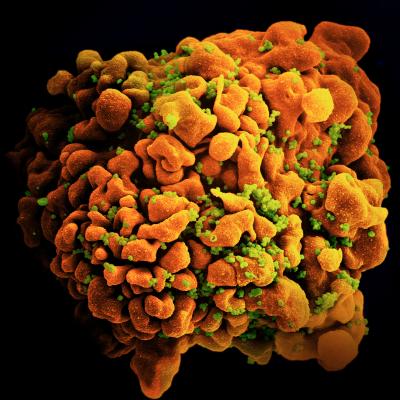NIAID invites research applications to study the critical drivers of tuberculosis (TB) transmission at the individual and population levels in high-burden settings, develop methods to measure transmission rates, and assess potential interventions through the notice of funding opportunity (NOFO) Halting Tuberculosis (TB) Transmission (R01, Clinical Trial Optional).
Research Objectives
The TB transmission cycle is extremely complex with multiple contributing host/pathogen/micro-environmental factors. The key drivers of transmission are not completely understood. Improved knowledge of the interactions and factors driving transmission would allow efficacious approaches for preventing transmission to be developed or improved and adapted for broad scale-up.
NIAID is interested in applications covering the following research areas:
- Understanding the impact of the spectrum of TB disease, including the role of asymptomatic, pre-symptomatic, and differentially culturable TB, in transmission.
- Aerobiology.
- Environmental impacts on transmission.
- Understanding nontraditional spread (e.g., without cough or other symptoms, community spread with limited contact).
- Development or assessment of new methods or tools to measure transmission.
- Defining characteristics or sub-populations of Mycobacterium tuberculosis (Mtb) strains that impact transmission, including the role of Mtb strain heterogeneity.
- Studies of transmission in high-risk groups (e.g., healthcare workers, congregate settings).
- Studies to understand the impact of HIV co-infection and antiretroviral therapy on transmission of TB.
- Studies to understand the impact of comorbidities on TB transmission (e.g., diabetes, malnutrition).
- Studies to understand how to most effectively utilize resources to reduce transmission (e.g., preventive therapy, active screening strategies, targeted diagnosis, improved ventilation or airflow patterns).
We will accept low-risk, non-investigational new drug (IND) clinical trials, so long as the trial includes outcomes to improve understanding of drivers of TB transmission.
Nonresponsive Research Areas
NIAID will consider applications including the following research areas to be nonresponsive and not review them:
- Zoonotic TB transmission, e.g., TB transmission from animals to humans or animals to animals; animal studies are allowed if they are a readout of human-to-human TB transmission.
- Clinical trials that require an IND application.
- Projects for development of systemic chemoprophylaxis, host-directed therapeutic agents, or vaccines as potential interventions.
If you are proposing an NIH-defined clinical trial, refer to Research Methods Resources for information on developing statistical methods and study designs.
Award and Deadline Information
NIAID intends to fund four or five awards through this NOFO. Application budgets are not expected to exceed $750,000 in annual direct costs and should reflect the actual needs of the project. The scope of the proposed project should determine the project period, to a maximum of 5 years.
Submit applications by December 4, 2024, at 5 p.m. local time of the applicant organization.
Send any inquiries to Dr. Karen Lacourciere, NIAID’s scientific/research contact, at lacourcierek@niaid.nih.gov or 240-627-3297. Send any peer review related inquiries to Dr. Soheyla Saadi, NIAID’s peer review contact, at saadisoh@nih.gov or 240-669-5178.


